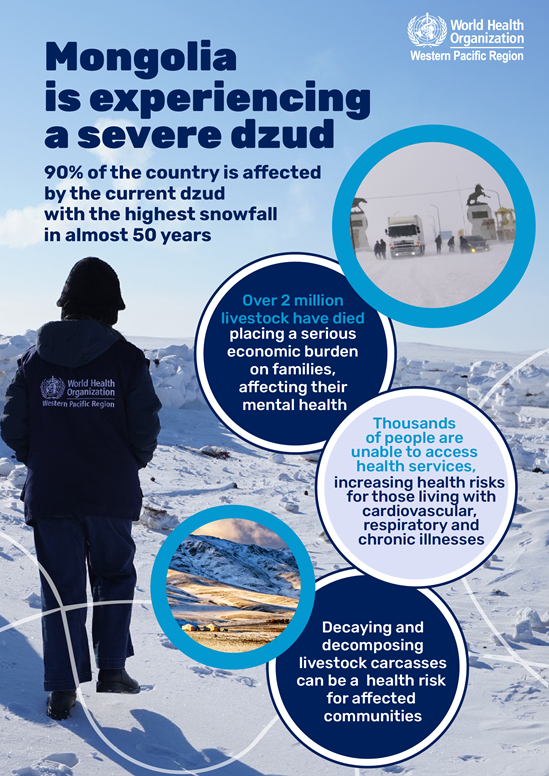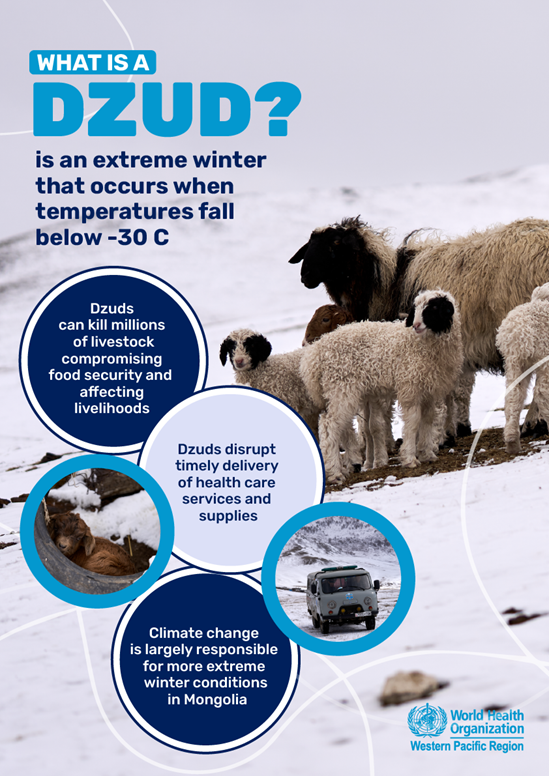
Dzud in Mongolia
A local ambulance navigates the slopes of Bolormaa’s home valley in Mongolia.
On 14 February 2024, the Government of Mongolia passed a resolution declaring a heightened readiness level until 15 May because of the current severe dzud affecting the country.
A dzud is an extreme weather event with temperatures dropping to -30°C or lower, with strong winds, heavy snow and ice. This 2023-2024 winter has seen the highest snowfall recorded in the last 49 years. At its peak, 90% of the territory of Mongolia was covered with thick layers of snow.
The World Health Organization (WHO) is working closely with the government and Ministry of Health of Mongolia, as well as other UN agencies and international partners, to support the country during the current dzud and minimize disruptions to access and delivery of health care services.
WHO has so far shipped 4 tons worth of medicines and medical supplies, intended for 21 affected provinces. Additional supplies are being sourced from the Global WHO stockpile in Dubai.
To strengthen resilience of local health systems, especially during dzud, WHO—in collaboration with the Mongolian Ministry of Health— works with governors, and health care workers throughout the country.






